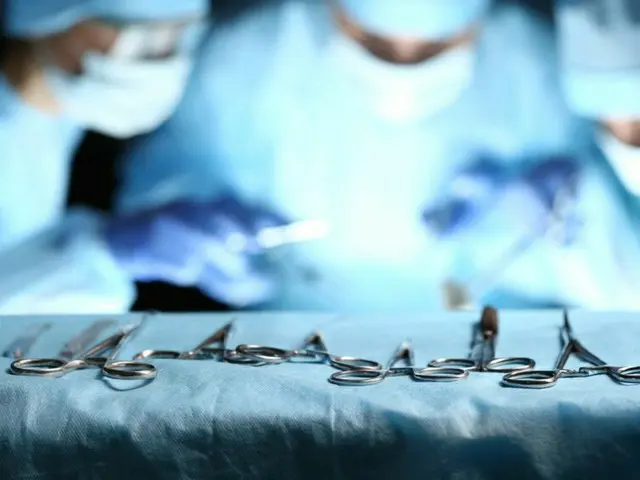I am living in fear every day because the cancer is stage 3 and there is a possibility that it may spread to other parts of the body. I have contacted the hospital several times, but they have told me to wait a little longer.
"At the very least, we should do what is scheduled," said Lee, confiding his feelings, "I just watch the news every day and wait."
On the 23rd, two months after the residents left the hospital, the effects of the departure are still felt by the patients. Cancer patients are waiting for surgery, not knowing when it will come, worrying about metastasis, and terminal cancer patients are
The Korean government has announced various measures, but the patients are not seeing any results.
In order to prevent this, they are of the opinion that the conflict between the medical profession and politics must be resolved as soon as possible. Ms. A, who has been undergoing cancer treatment several times, had a positive breast test on the 11th of last month.
She was scheduled to undergo surgery to remove the tumor. However, after the medical confusion, the hospital unilaterally postponed the surgery on the grounds that the tumor was positive (not malignant).
"There is a high chance that it will develop into cancer, and I have already had cancer twice, so I am very worried. I hope they can get the surgery soon."
In particular, patients who are waiting for anti-cancer drug treatment should be aware that if the cancer spreads or the anti-cancer drug treatment begins,
Ms. B, who was diagnosed with cancer at a general hospital in Seoul, decided to undergo radiation therapy after surgery, but was forced to resign indefinitely after the resident doctors submitted their resignations.
The deadline was extended. B had no choice but to undergo surgery at another hospital, but was told that the hospital did not have the capacity to provide radiation therapy. B said, "I would like to discuss this again once this situation is over.
"I was just told that," he said, lamenting, "Who would want half-hearted treatment?" Furthermore, terminal cancer patients complained that the hospital had effectively stopped medical treatment, leaving them with no choice but to wait for death.
Byun In-young, president of the Pancreatic Cancer Patients Association, said, "We had a patient whose cancer recurred and metastasized after surgery and was diagnosed as stage 4. In a normal hospital environment, chemotherapy would be administered.
He could have received the treatment and his life expectancy would have been extended, but he did not receive proper treatment and his organs became blocked. The hospital said, "You should consider transferring to a hospice." That's just like saying, "I should just die."
If the resignation of the professor from the medical school continues after the 25th, patients will feel more than just anxious; they will feel hopeless.
"I am patient, knowing that the professors who know the patients best will not abandon them," he said. "If they were to abandon the patients, it would be like death for the seriously ill patients."
"The professors themselves know better than anyone else that this means that they are being treated unfairly," he said. After the resignations of the residents, the Korean government, which had foreseen this situation, has announced various measures.
Starting with the institutionalization of PA (Physician Assistant) nurses, the introduction of public doctors and military doctors, the temporary relaxation of requirements to allow medical institutions to directly prescribe medicines, and cooperation in cancer treatment.
The government has proposed measures such as operating the hospital and providing medical treatment at other general hospitals, with the aim of filling vacant resident positions with other talent and dispersing the demand currently concentrated at advanced general hospitals.
However, patients are not feeling the effects of these government measures. Especially in the case of cancer treatment hospitals, these measures are not very effective.
Kim Seong-ju, president of the Korea Serious Diseases Association, said, "When it comes to side effects from anti-cancer drug treatment, there is a world of difference between the know-how and methods of dealing with them at advanced general hospitals and those at general hospitals."
"There is no choice but to go to a general hospital, but if intestinal adhesions or strictures occur, I wonder whether the cooperating hospitals will be able to treat them."
Some have also raised doubts about PA nurses who are being deployed to replace medical residents. Ms. Park, a woman in her 60s who is undergoing chemotherapy, said, "I think nurses should be doing what doctors used to do."
If a doctor can do it easily, why do doctors have to go to university for so long?" he said. "I can't trust them and I'm worried." Byun also said, "When I'm receiving treatment, complications can occur in unexpected places.
"There are cases where this is the case, but in such cases the professors should be the ones providing the treatment," he said, adding, "Even if we're told to trust them, there's nothing we can do."
Ultimately, the fundamental conflict between medicine and politics must be resolved.
The Korean Patients' Association stated, "What is most important at this point in time is a quick resolution to the current situation," and "We hope for a quick and amicable resolution to this situation and are calling on the government to take action."
"We demand that the prefecture and the medical community take a positive approach and work to resolve this situation."
2024/04/24 07:05 KST
Copyrights(C) Edaily wowkorea.jp 107

